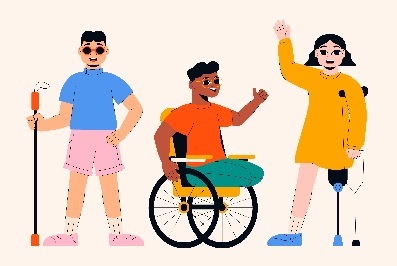
In one of the episodes of The Big Bang Theory, Penny sets Raj up with a woman who is hearing and speech-impaired. When she comes to know that the woman is manipulating Raj only for his money, she refuses to believe it at first. The reason she gives is “Handicapped people are nice, Leonard. Everyone knows that.” This line is offensive no doubt, but for a very good reason. It needed us to think about how we discriminate against those with any kind of disability by generalizing them as infallible, good people only because they have a disability. It might not sound like discrimination in ways which we normally think of when we hear the word. Nonetheless, it is. Worse yet, it is very common.
I have utmost respect and admiration for those who overcome their physical and mental disabilities and go on to achieve their goals. That, of course, deserves an extra round of applause considering how they succeeded by putting in 200%, where for others a 100% would suffice. But quite often we take this admiration forward to unnecessary levels only to make it look like sugarcoated sympathy. That is something, I’m sure, any person would despise. Anything good, when overdone, becomes suffocating and irritating. And a classic example of that is the aforementioned tendency to treat them as perfect human beings with a stellar personality despite knowing nothing about them on a personal level, simply because as Penny says “Handicapped people are nice”! How offensive is that to them!
I have personally known several people with disabilities and while I have appreciated them for not giving up on their dreams, I have been careful to treat them the same way I would treat my other friends or colleagues. Of course, I would hold their hands if they couldn’t see and take them to wherever they needed to go if they needed my help. But I have never thought of that as a special gesture, just like you offer them a seat on the bus. Some of these people were amazing, some were just okay, and some absolutely deplorable – just like people without disabilities.
There was a blind person I knew who used to take advantage of his condition to touch girls, who were under his supervision, inappropriately. Most of these girls kept quiet despite feeling extremely uncomfortable only because they weren’t sure whether or not to give him the benefit of doubt considering his condition. Only when a girl finally opened up about it to the authorities and lodged a formal complaint did the other girls speak about their experience too. He was fired following an investigation. What enraged me more than anything about this incident was how this jerk ruined it for others like him. In all probability, an innocent mistake from their side would be viewed with suspicion by others, only because they had heard about what this scumbag had done.
The question is, why should we think of him as a “good guy”? How is it fair to others, with or without challenges, who are genuinely good? And when you use such a condition as a reason to justify such jerks, you are discriminating against anyone with a challenge like this, whether you mean to or not. So please, stop with your “unintentional sympathy-induced discrimination”, and treat special people as just people. I am sure they want it that way too.
Also published on Medium.
November 30, 2021 at 4:59 pm
Loved this one.
Made me remember another uncommon common standard, seen in the newspapers – someone returning a lost golden anklet to its owner glorified in a formal event of appreciation.
Their appreciation is as bad as telling, “Thank you for not becoming a thief!” as if an appreciation to a potent thief.
There might be many people who might do otherwise, still glorifying that only deteriorates the notion of being truthful as something abnormal.